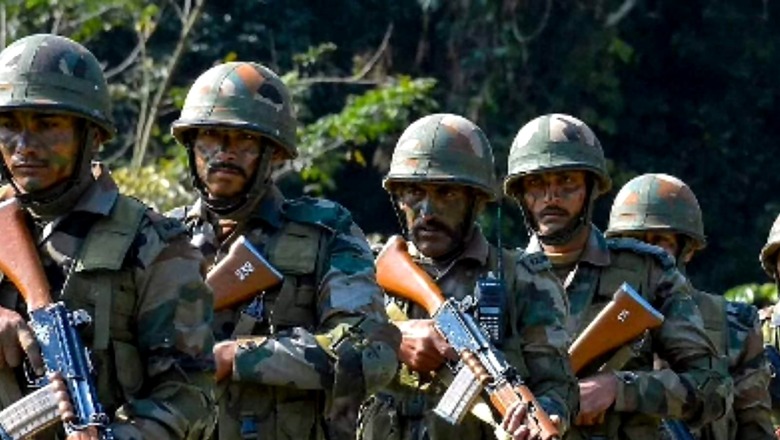
views
The Ministry of Home Affairs early Wednesday enforced a ban on the Popular Front of India (PFI) and all its affiliates for five years after a mega-raid operation by central agencies on the body and its properties.
The Centre also declared the outfit to be of ‘unlawful association’ under the UAPA act. BJP leader CT Ravi called it a huge step against ‘home-grown’ terrorism.
Coincidentally, the step comes on the same date – September 28 – as another important move four years ago in 2016, that is, the Surgical Strikes. While the operation by the Indian Army was carried out on September 28, the official announcement by the government came a day later, and September 29 was declared to be celebrated as ‘Surgical Strike’ day.
Ahead of the anniversary of the operation, and amid the recent ban on PFI by the Centre, here’s a look at how the Strikes happened:
In Response to Uri
The Indian Army launched surgical strikes against terrorist camps in Pakistan-occupied Kashmir in September 2016. The strike on September 28, 2016, was in response to a September 18 attack by Pakistan-based terrorists on an army base in Kashmir’s Uri, which killed 19 soldiers.
Prime Minister Narendra Modi revealed the details of the military action in an interview with news agency ANI, saying that the date of the attack was changed twice to ensure the safety and security of the troops.
The Prime Minister stated that the surgical strikes were planned because a “rage” was building up within him and the Army after soldiers were killed in the Uri terror attack. PM Modi also stated that he told the troops not to think about success or failure and to return “before sunrise.”
Terrorists from Pakistan’s Jaish-e-Mohammed attacked the Army camp in Uri near the Line of Control in September 2016, killing 20 soldiers.
In retaliation, Indian Army troops, including commandos from various Para (Special Forces) units stationed in Jammu and Kashmir, conducted border raids on multiple targets.
All of these targets served as staging areas for terrorists infiltrating into Jammu and Kashmir and carrying out attacks on military and civilian targets.
Wanted Justice for Fallen Soldiers: PM Modi
PM Modi stated that while speaking with the Army, he realised that they wanted justice for their fallen soldiers, and the government gave them “free hand” to plan and carry out the surgical strikes.
The surgical strike was applauded by both the people and the armed forces, with defence minister Rajnath Singh declaring that it sent a clear message to the world that “we can kill terrorists on this side as well as by crossing the border if necessary.”
The PFI Ban & Raids
The PFI ban comes after multiple raids against the outfit being carried out by central agencies since September 22.
On Tuesday, more than 170 people PFI were detained or arrested in raids across seven states on Tuesday, five days after a similar pan India crackdown against the group often accused of being linked to radical Islam. Conducted mostly by state police teams, the raids were spread across Uttar Pradesh, Karnataka, Gujarat, Delhi, Maharashtra, Assam and Madhya Pradesh.
On September 22, multi-agency teams spearheaded by the National Investigation Agency (NIA) arrested 106 leaders and activists of the PFI in 15 states for allegedly supporting terror activities in the country. The NIA is investigating 19 cases involving the PFI.
As police teams fanned out across their respective states on Tuesday, seemingly synchronised, the action was swift. While 25 people each were arrested in Assam and Maharashtra, 57 were detained in Uttar Pradesh, officials said. The count of those detained in Delhi was 30, Madhya Pradesh was at 21 followed by 10 in Gujarat and six in Pune in Maharashtra. Besides, several people were also arrested in Karnataka. BJP leaders have welcomed the ban as a move against terrorism.
With inputs from PTI
Read all the Latest News India and Breaking News here


















Comments
0 comment